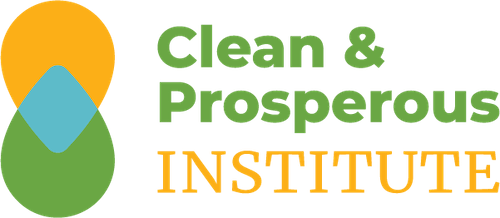As you study the Risk of Repeal map of projects funded by the Climate Commitment Act, you’ll find exciting investments in every corner of the state. But perhaps none will have a larger and farther-reaching impact than what’s happening in Moses Lake, an emerging hub for production of silicon-enhanced chemicals for making batteries higher performing and faster charging.
Join us this September 17th to 20th for our Made in Washington Study Mission, as we explore multiple clean energy projects East of the Cascades.
On one of our tours, the Clean & Prosperous Institute delegation will visit Sila, a next-generation battery materials company, at its new manufacturing plant in Moses Lake on September 18th. Two years ago on our Study Mission to California, we visited Sila’s California headquarters for a presentation on its breakthrough silicon anode technology and a tour of the lab and manufacturing facilities. Since then, Sila has purchased and is finishing construction on its first auto-scale manufacturing plant for the 2025 production and delivery of its Titan SiliconTM anode to automotive customers. During the visit, we will meet with Sila’s production leadership and local officials to learn more about the company’s progress and impact on the community, and to get one of the very first tours of the impressive plant site.

Image courtesy of Sila
As one of the first projects funded ($100 million) by President Biden’s Bipartisan Infrastructure Law to expand domestic manufacturing of batteries for electric vehicles and the electrical grid, Sila is a great example of how public funding can “prime the pump” for later, larger private funding.
After raising $375 million in its latest investment round, Sila Co-founder and CEO Gene Berdichevsky said, “Our investors share the perspective that the world will transition to fully electric. Every automaker knows the future must be electric and realizes that the path to broader adoption isn’t through cost reduction alone. To transform the world and meet consumer expectations, the industry needs to take the next big step on battery performance and charging speeds. With Sila, automakers can deliver next-generation EVs that will win over those who expect more from their electric experience.”
According to Geekwire, “Sila expects to produce enough of its Titan Silicon anode material at the site to help power a million cars.”
 On the Made in Washington Study Mission, you’ll also see:
On the Made in Washington Study Mission, you’ll also see:
- What Pacific Northwest National Laboratory (PNNL) is doing to help develop a power grid that meets the complex challenges of the future
- The Columbia Generating Station, the northwest’s only commercial nuclear energy facility, as Washington is leading the next generation of nuclear energy development
- Spokane’s South Landing EcoDistrict, including the Catalyst Building, Morris Center, and Avista’s R&D center
- BrightNight’s Hop Hill Renewable Power Project which uses agrivoltaics and combines renewable solar energy and battery storage to complement Eastern Washington’s existing hydro and nuclear resources
This trip will coincide with the release of an upcoming Climate Commitment Act economic analysis report, so we’ll have lots to talk about!
Registrations are open but space is limited. The deadline to register is Friday, August 9. Questions? Please email [email protected]
